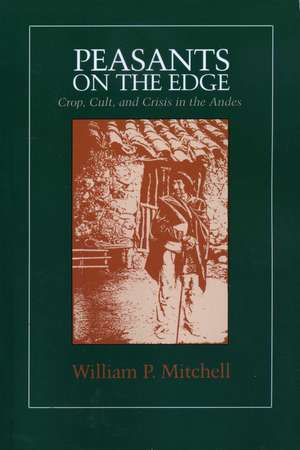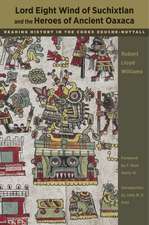Peasants on the Edge: Crop, Cult, and Crisis in the Andes
Autor William P. Mitchellen Limba Engleză Paperback – iun 1991
When Mitchell first began his field studies in Quinua in 1966, farming was still the Quinueños' principal means of livelihood. But while the population was increasing rapidly, the amount of arable land in the community remained the same, creating increased food shortfalls. At the same time, government controls on food prices and subsidies of cheap food imports drove down the value of rural farm production. These ecological and economic factors forced many people to enter the nonfarm economy to feed themselves.
Using a materialist approach, Mitchell charts the new economic strategies that Quinueños use to confront the harsh pressures of their lives, including ceramic production, wage labor, petty commerce, and migration to cash work on the coat and in the eastern tropical forests. In addition, he shows how the growing conversion from Catholicism to Protestantism is also an economic strategy, since Protestant ideology offers acceptable reasons for redirecting the money that used to be spent on elaborate religious festivals to household needs and education.
The twenty-year span of this study makes it especially valuable for students of social change. Mitchell's unique, interdisciplinary approach, considering ecological, economic, and population factors simultaneously, offers a model that can be widely applied in many Third World areas. Additionally, the inclusion of an entire chapter of family histories reveals how economic and ecological forces are played out at the individual level.
Preț: 240.63 lei
Nou
Puncte Express: 361
Preț estimativ în valută:
46.05€ • 47.57$ • 38.33£
46.05€ • 47.57$ • 38.33£
Carte tipărită la comandă
Livrare economică 25 martie-08 aprilie
Preluare comenzi: 021 569.72.76
Specificații
ISBN-13: 9780292721456
ISBN-10: 0292721455
Pagini: 276
Ilustrații: 10 b&w illustrations
Dimensiuni: 152 x 229 x 15 mm
Greutate: 0.41 kg
Editura: University of Texas Press
Colecția University of Texas Press
Locul publicării:United States
ISBN-10: 0292721455
Pagini: 276
Ilustrații: 10 b&w illustrations
Dimensiuni: 152 x 229 x 15 mm
Greutate: 0.41 kg
Editura: University of Texas Press
Colecția University of Texas Press
Locul publicării:United States
Notă biografică
William P. Mitchell is Professor of Anthropology and Freed Professor in the Social Sciences at Monmouth University in New Jersey.
Cuprins
- Acknowledgments
- 1. The Transformation of a Peasant Society
- 2. Population Growth and Ecological Limits
- 3. Resource Ownership and Control
- 4. Agricultural Production and Food Consumption
- 5. The Structure of Economic Exchange, 1966–1974
- 6. The Dynamics of Economic Change
- 7. Feasts and Cargos, 1966–1974
- 8. The Dynamics of Religious Change
- 9. The Individual and Social Change
- 10. Quinua’s Transformation
- Appendixes
- Notes
- Bibliography
- Index
Recenzii
...this clearly written, well-argued and highly informative book offers many important lessons for those interested in managing Third World modernization.
Descriere
A long-term study of economic and ecological changes in a small Andean community.












